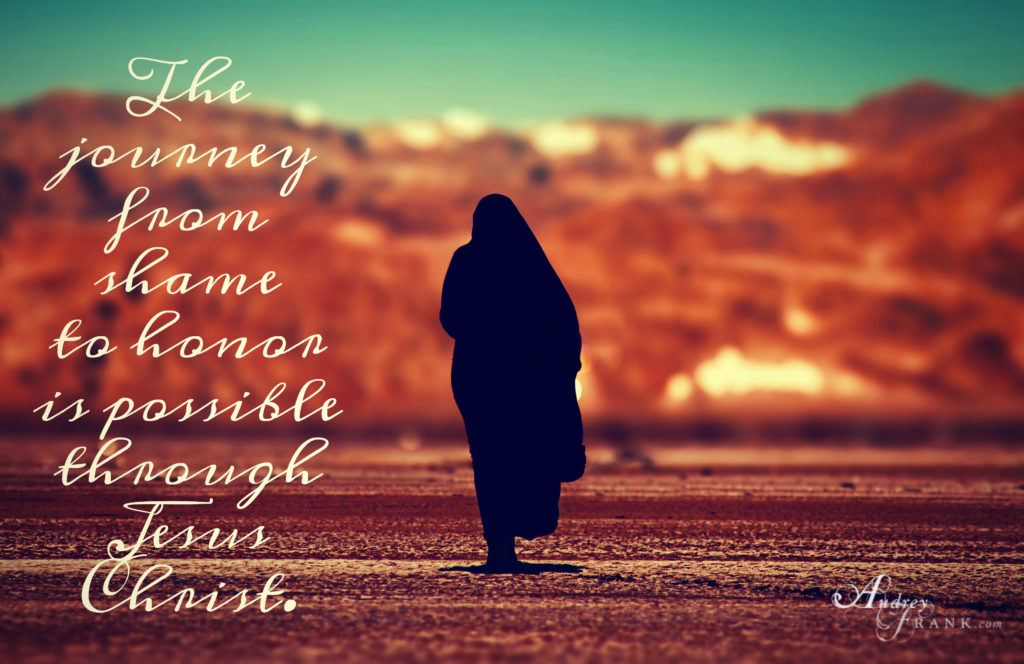What Loving Muslims Taught Me About the Gospel

The billowing saffron colored melhfa blew around her small frame like a mystery.
And that suited her, for that’s what she was the first day I laid eyes on her. An enigma, a puzzle, a silent beacon of courage pressing against the crowds outside our hospital gates.
I did not understand her yet. But I would, and knowing her would teach me more than I could have imagined.
Two hours later it was finally her turn with our team of examiners. The nurse was first, then me. As a speech-language pathologist on a cleft-palate team, my first job was to examine the patient and determine his or her candidacy for surgical repair within the context of feeding and speech. Patients’ names would then be placed on a priority list.
It was a nearly impossible task to prioritize broken, wounded people on a list. But it was the task I faced with a trembling heart that day and many others like it.
The woman in saffron was not alone. Within the folds of her melhfa, she carried a tiny baby boy. Holding him up to me like an offering, she placed him in my arms. I could not breathe for an instant, my heart caught in my throat at his beauty. Mahogany eyes gazed unafraid at me from a perfectly shaped face.
For a moment I forgot what I was looking for. But the facial difference was there, peeking at me from the top right corner of his otherwise unblemished lips. A tiny indentation, as if somehow in utero his upper lip had gotten creased or pinched.
“Huli fomu,” his mother said as she gestured toward his mouth. With gloved hands, I opened his mouth as she had asked and discovered a small fistula on his palate. Small, but big enough for milk to leak through instead of passing to his stomach for much-needed nourishment. He was undersized and thin for his four months.
This little one was a high priority according to anyone’s standards.
His mother had traveled five days from the far end of the desert to reach us. He was her firstborn son, a great accomplishment for a young wife in her culture. However, because of his physical difference, he and she would never experience the pride of such a position and the accolades it traditionally brought. Instead, she had been cast out of her village along with the baby. A cleft lip or palate was a sign of cursing and bad luck, and the vulnerable pair was not allowed to remain.
A distant relative had told her about our hospital. Selling her meager possessions, she had collected just enough money to make it two days. The other three, she begged and walked.
As I gently handed her precious son back to her, she looked at me with tearful eyes and whispered, “He is my honor.”
In the Islamic worldview of honor and shame, honor is a position attached to a group. That group can be one’s family, community, tribe, or nation. Follow the prescribed rules, and your honor is secure. Break them, you lose your position and are shamed.
This young mother had lost her position in the group, her honor, when she bore a child with a physical difference. Outside the group, she was shrouded in shame.
But she did not see her son through the eyes of shame. She saw him through the eyes of a mother, and he was the best gift God had ever given her. No matter what anyone said, he was beautiful and he belonged to her.
Her bold refusal to accept her son as an object of shame was courageous and rare. To lovingly call him Sharif, or honored one, was an outright affront to her family’s worldview. Descendants of Islam’s prophet Muhammad were called Sharif. It was a title of respect commonly used in society. But for a child with a disability? Never.
“The Messiah Jesus agrees with you about your son. He is indeed a Sharif,” I said to her quietly as she tucked a soft blue cloth around her little one. “And you are also a Sharifa in God’s sight,” I added.
Startled, she looked quickly away, shades dropping over her eyes like windows snapped shut. “No, not me. I am shameful now. Everyone knows.”
“Yes, they do,” I agreed. “Even God. And He loves you. You matter to Him.”
Thus began her wonderful journey out of shame and into honor as she learned more about Jesus, the Messiah sent to restore honor to every person, including women.
As a Westerner, I understand that Jesus died on the cross for my sins. I am forgiven because of His sacrifice for me. He died, was raised to life on the third day, and now I can live with him forever in heaven. That is the Gospel.
As a Muslim woman, my patient that day only knew that she was shamed for a deed beyond her control. She was cast away from fellowship with her family and community. She was now an outsider, rejected, along with her tiny son. And as far as she knew, God held the same opinion.
The Gospel for that young mother is that through Jesus Christ, she does not have to remain an outsider. Through faith in Him, she can become an insider in the family of God. The one who trusts Jesus is no longer rejected, she is fully accepted by His grace. Shame was abolished on the cross, along with guilt and fear. All who come to God through Jesus Christ are given a place of honor and belonging in the kingdom of God.
Am I preaching a different Gospel? Never! The Gospel of Jesus Christ removes our sin. That relieves my Western guilty conscience greatly.
But it does not make much sense to my Muslim sister who believes that her sin is against herself, and hurts herself, not God. He is too mighty and lofty to be hurt by it, in her belief system. Concerning forgiveness, there is no sacrifice involved on God’s part, according to the Islamic worldview.
Genesis 3 is an account not only of the moment sin entered the heart of humanity, but also the dramatic moment shame, fear, and guilt cast its long shadow. We yet live in that shadow, unable to flee from its darkness. We have inherited it, and something beyond ourselves must be done to make it right again.
[tweet_box design=”default” float=”none”]A great starting point in sharing the Good News with my #Muslim friend is the truth that Jesus removes our #shame and gives us #honor instead. [/tweet_box]
My friendships with Muslims have led me to discover that although I knew at age nine I was forgiven by God through Jesus, I have been carrying around a back-breaking, heart-smothering burden of shame all these years. And until I examined the Gospel through the eyes of my Muslim friend’s need, I did not know what to do with my own shame.
Now I do.
Christian, God has abolished shame through his son Jesus Christ. He has forgiven us our sins, He has given us power over fear, and he has released us from shame. We matter to Him. He honors us because He loves us. Jesus Christ sacrificed His life so we would come home again, would belong, again, forever.
Think about that.

No Comments